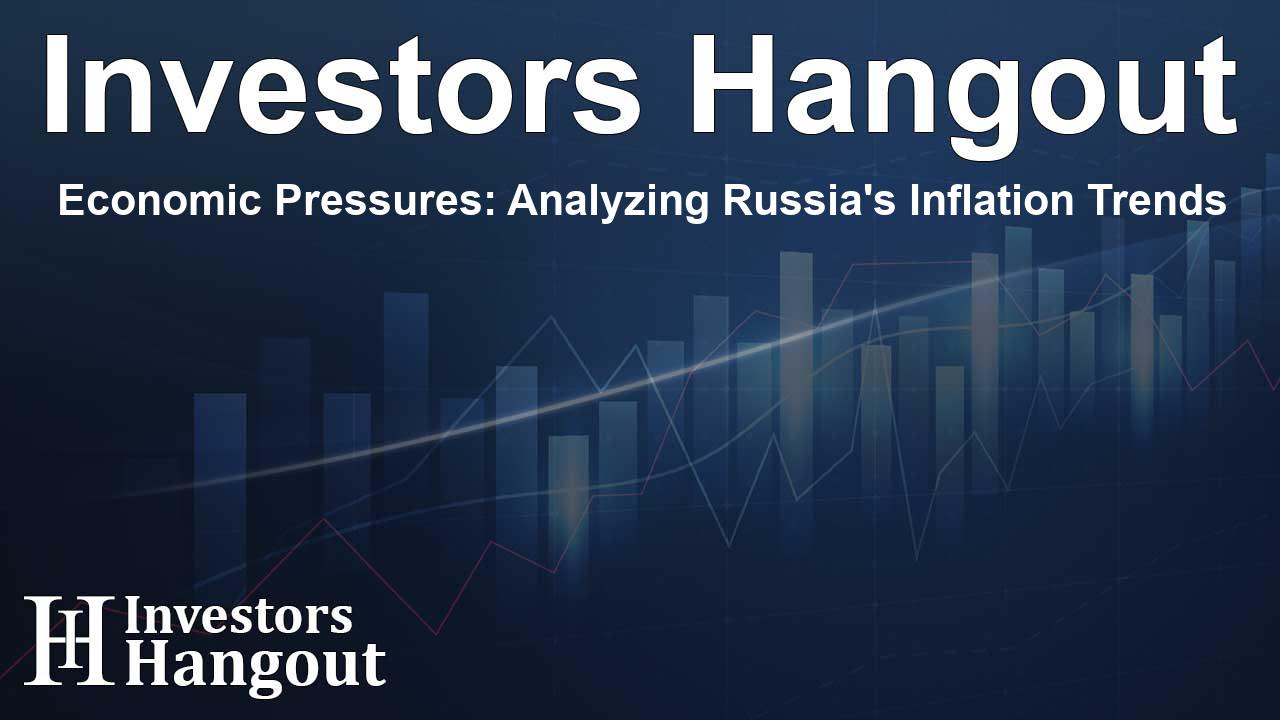Economic Pressures: Analyzing Russia's Inflation Trends

Understanding Inflation Trends in Russia
Recent analyses reveal that Russian consumer prices increased significantly by 9.52%, compared to a lower rate of 7.42% in the prior year. This rise marks the inflation rate for 2024 as the fourth highest over the last fifteen years.
Economic Context of Rising Prices
In 2022, the backdrop of high inflation began as the country faced repercussions from geopolitical tensions, particularly following the initiation of the invasion of Ukraine. Additionally, the economic downturn experienced in 2014-15, stemming from the annexation of Crimea, saw inflationary pressures escalate during this tumultuous period.
The Role of Military Spending
The surge in inflation has become a significant concern within Russia’s economy, primarily fueled by extensive government military expenditures. To combat this, the central bank has kept its benchmark interest rate at a substantial 21%, marking the highest level seen in the past two decades, as part of its strategy to manage and hopefully reduce inflation.
Price Increases Observed in Early 2025
As we enter 2025, initial data indicates that consumer prices experienced a growth of 0.67% within the first two weeks, influenced heavily by the holiday season. Notably, the rise in prices is prominently attributed to increased costs in essentials such as food, liquor, and public transportation.
Specific Price Increases
Diving into specific numbers, prices for vodka soared by 3.7%, whereas cucumber prices showed a substantial increase of 8.6%. Simultaneously, the cost of subway tickets rose by 8.2%, marking another annual adjustment as the year started, which was followed by additional hikes in public transport fares for buses and trams.
Impact on Vulnerable Groups
Despite an overall increase in wages, the compounding effect of inflation is leading to a decline in real earnings for the less fortunate segments of society. Data indicates that real pension values decreased by approximately 0.7% from January through November 2024, highlighting the struggle faced by those on fixed incomes amidst rising living costs.
Future Implications
As inflation continues to challenge Russian households, the situation presents an ongoing economic dilemma that necessitates careful observation. Consumers, businesses, and policymakers alike must strategize effectively to navigate the complexities wrought by persistent inflation pressures.
Frequently Asked Questions
What is driving inflation in Russia?
Inflation in Russia is primarily driven by military spending and rising costs of essential goods and services.
How does inflation impact the average citizen?
The average citizen faces increased prices for everyday items, which can erode purchasing power, particularly among vulnerable groups.
What measures is the central bank taking?
The central bank has set the benchmark interest rate at 21% to combat inflation by discouraging borrowing and spending.
Are wages keeping up with inflation?
While there is overall wage growth, it is not sufficiently keeping up with inflation, especially impacting retirees and low-income groups.
What is the expected trend for prices in 2025?
Based on early data, prices are expected to continue rising into 2025, driven by seasonal factors and economic conditions.
About The Author
Contact Olivia Taylor privately here. Or send an email with ATTN: Olivia Taylor as the subject to contact@investorshangout.com.
About Investors Hangout
Investors Hangout is a leading online stock forum for financial discussion and learning, offering a wide range of free tools and resources. It draws in traders of all levels, who exchange market knowledge, investigate trading tactics, and keep an eye on industry developments in real time. Featuring financial articles, stock message boards, quotes, charts, company profiles, and live news updates. Through cooperative learning and a wealth of informational resources, it helps users from novices creating their first portfolios to experts honing their techniques. Join Investors Hangout today: https://investorshangout.com/
The content of this article is based on factual, publicly available information and does not represent legal, financial, or investment advice. Investors Hangout does not offer financial advice, and the author is not a licensed financial advisor. Consult a qualified advisor before making any financial or investment decisions based on this article. This article should not be considered advice to purchase, sell, or hold any securities or other investments. If any of the material provided here is inaccurate, please contact us for corrections.
